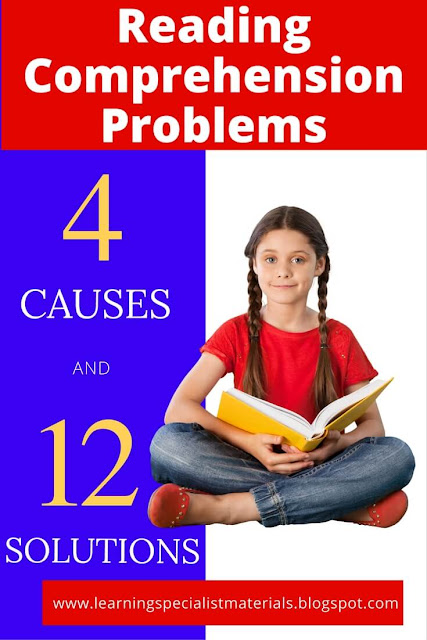This week I wanted to tell you about my online store, Good Sensory Learning. I’m Dr. Erica Warren, and I established this site so I could share all the materials that I have created over the last 20+ years as a learning specialist and educational therapist. When I first began my private practice, Learning to Learn, I had great difficulty finding fun and multisensory materials for my students that were effective and engaging. So back in 2005, I made it my mission to design and distribute high-end, remedial products as well as memorable, motivating lessons that bring delight to learning. If you would like to try a free sampling of my activities , CLICK HERE . How Are the Products Organized at Good Sensory Learning? You can download my Free Printable Catalog or you can browse the site using the grey “search all products” bar in the top right of any page with keywords such as dyslexia, working memory, and executive functioning. What’s more, drop down menus in the red banner allow you t...
I'm sure most you have experienced the act of reading a book, while your mind was wandering elsewhere. So, you can probably appreciate how easy it is for youngsters to miss meaning while reading. Although teachers, reading specialists and even parents spend an enormous amount of time instructing young learners how to decode the written word, they often neglect to fully teach the metacognitive skills required to comprehend text.
What are the Common Causes of Reading Comprehension Problems?There are a number of indicators that can be used to flag students who will likely require explicit instruction in reading comprehension.- Learners that have or had weak oral language skills when they were in preschool.
- Students that have underdeveloped word decoding skills.
- Learners with weak executive functioning skills, especially in working memory which involves the use of one’s “inner eye” and “inner voice.”
- Learners with poor language processing abilities. They may struggle with any of the following difficulties
- Semantic processing - the processing of perceiving words and placing them in a context that allows for deeper meaning.
- Vocabulary - all the words known by an individual person.
- Inferences - the act or process of reaching a conclusion about something from known facts or evidence.
- Text structure - the many ways text can be organized.
- Grammar - the study of the classes of words, their inflections, as well as their functions and relations in the sentence.
What are Some Reading Comprehension Strategies?
- Teach students to be active participants when reading. Exhibit aloud your own inner voice as you use your own metacognitive skills to actively engage in reading.
- Develop decoding skills to automaticity - so students have the “cognitive space” to engage with the text.
- Foster a robust vocabulary by both teaching individual words as well as how to glean the meaning of new words from the surrounding text.
- Teach the grammatical rules that make up language.
- Instruct students about the morphological structure of words so that learners can figure out the meaning of many unknown words by evaluating prefixes, roots, and suffixes.
- Illustrate higher order language skills and teach students how to question, infer meaning, make personal connections and generate predictions.
- Teach students about text structure such as the setting, characters, initiating events, problems, resolution, explicit themes, cause and effect, compare and contrast, as well as problem and solution.
- Show students how to annotate text or take notes that summarize and sequence important events.
- Develop each student’s ability to generate mental imagery while reading.
- Show learners how to create their own inner questions that can focus attention on content and help them to make meaningful connections.
- Teach students how to monitor their attention and comprehension through mindfulness practices.
- Do pre-reading activities that explain the meaning of key words, activate relevant prior knowledge and generate mental imagery.
How Can I Improve Comprehension?
If you are interested in reading tools that can exercise and strengthen comprehension. Come review my reading publications at Good Sensory Learning.
If you would like to view a video blog that reviews this content, click on the image below:
Once you understand the causes of reading problems, the solutions become clear. I hope you found this blog helpful.
Cheers, Dr. Erica Warren
Dr. Erica Warren is the author, illustrator, and publisher of multisensory educational materials at Good Sensory Learning and Dyslexia Materials. She is also the director of Learning to Learn and Learning Specialist Courses.
· Blog: https://learningspecialistmaterials.blogspot.com/
· YouTube Channel: https://www.youtube.com/user/warrenerica1
· Podcast: https://godyslexia.com/
· Store: http://www.Goodsensorylearning.com/ & www.dyslexiamaterials.com
· Courses: http://www.learningspecialistcourses.com/
· Newsletter Sign-up: https://app.convertkit.com/landing_pages/69400
· Blog: https://learningspecialistmaterials.blogspot.com/
· YouTube Channel: https://www.youtube.com/user/warrenerica1
· Podcast: https://godyslexia.com/
· Store: http://www.Goodsensorylearning.com/ & www.dyslexiamaterials.com
· Courses: http://www.learningspecialistcourses.com/
· Newsletter Sign-up: https://app.convertkit.com/landing_pages/69400



Comments
Post a Comment